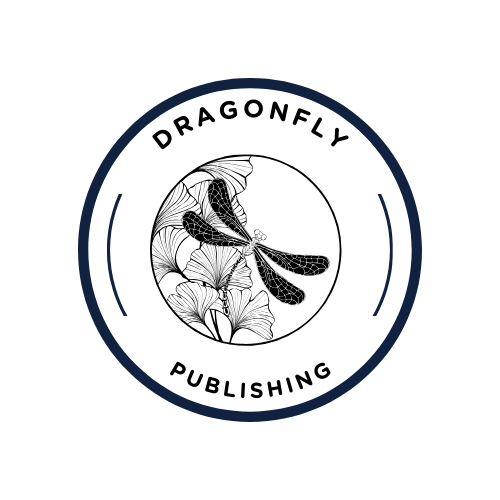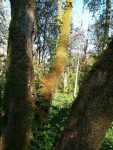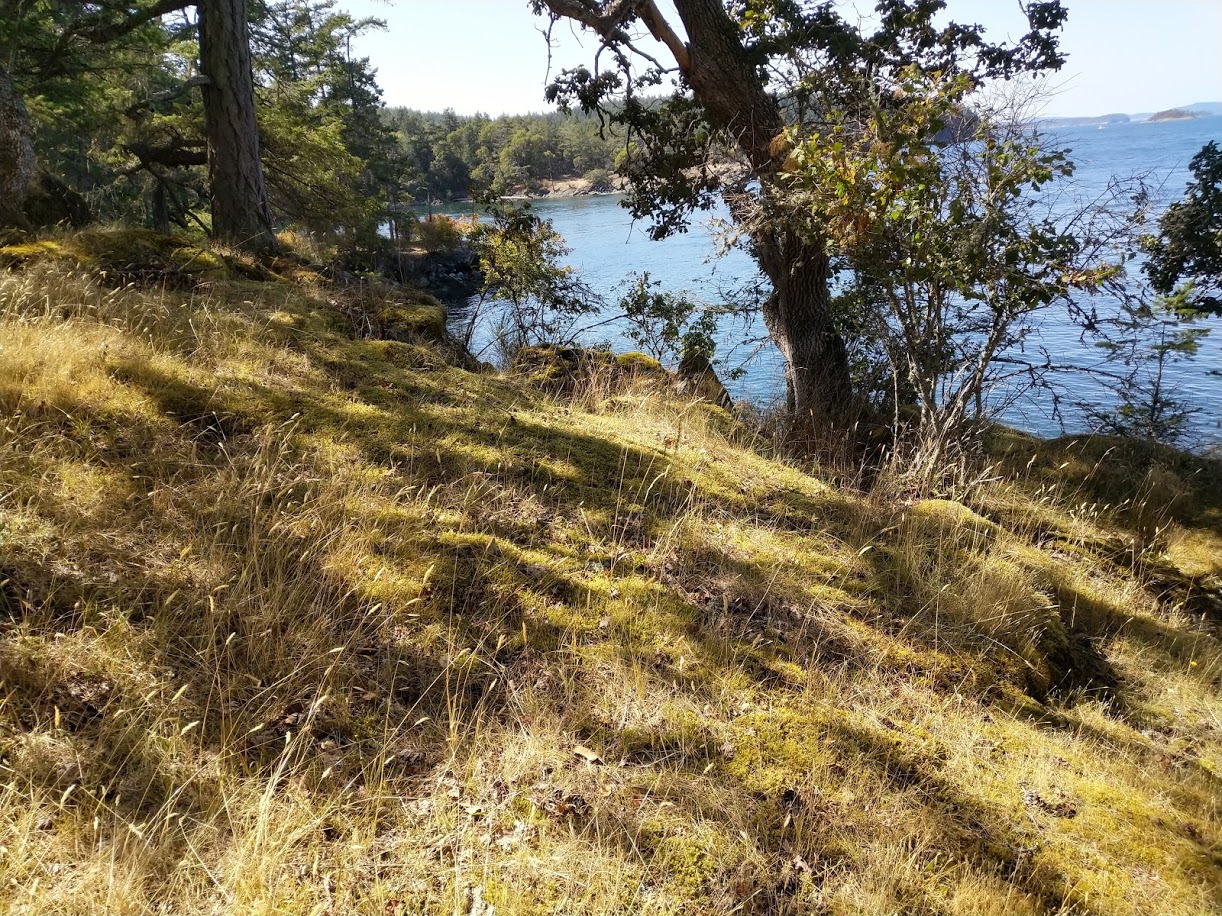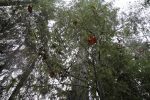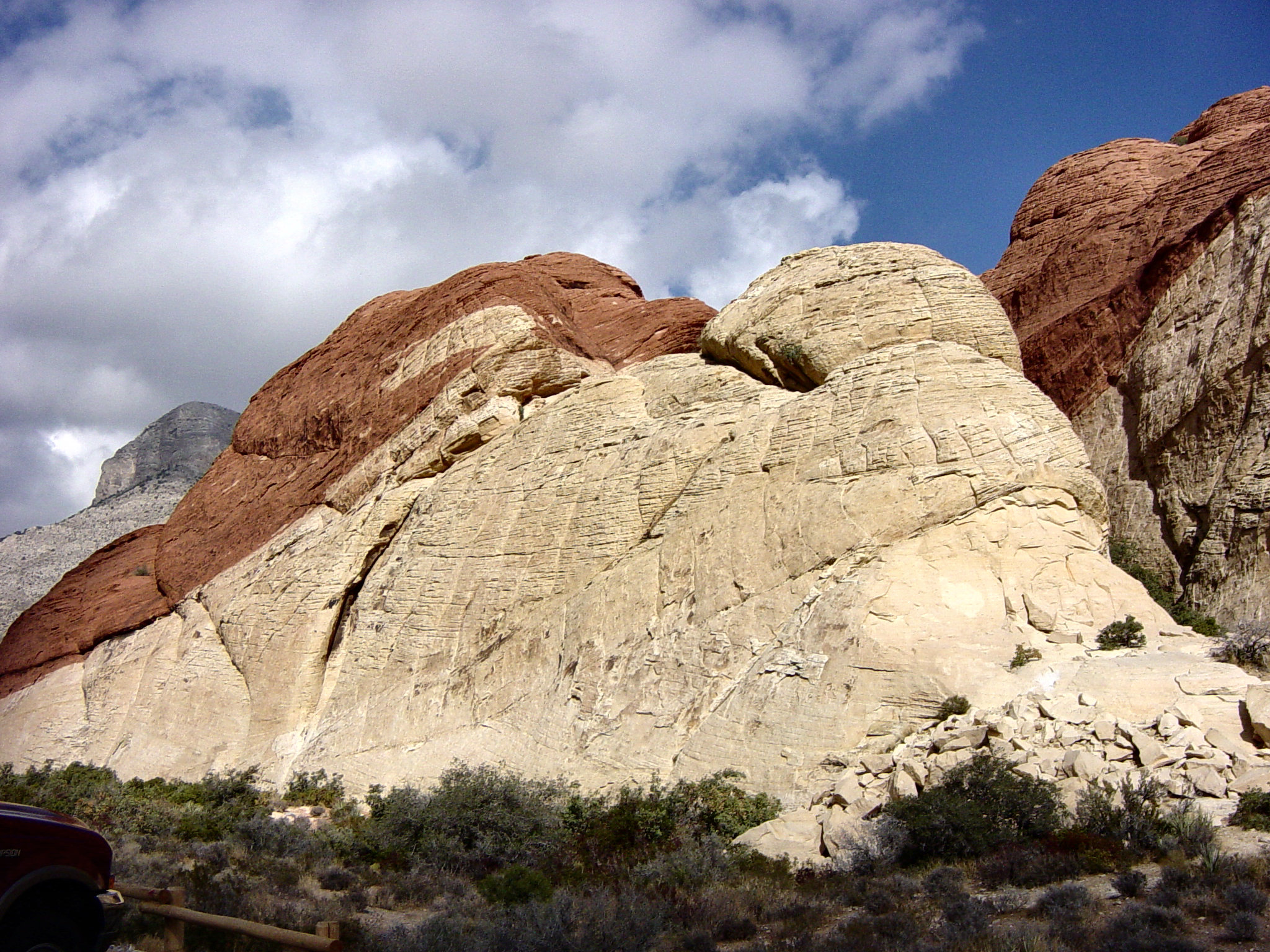I don’t have a lot of time to write at the moment–just wanted to get some quick thoughts down on paper. The more I read about ecological weird fiction, the more I want to read it, and now I want to work on a feature of it at the main site.
My toe is feeling better and doesn’t feel fractured (maybe I had just sprained it), so today I decided to at least hike (rather than bike) and ended up taking advantage of the great weather–warm afternoons full of falling leaves and sunshine–and did a four-mile, rapid pace through parts of the “cougar woods,” as I’ve termed them and then over to the other side of the Deer Lake woods.
I found a weird fiction podcast called “Death, Dying, and Other Things,” by Justyn Buske, to listen to during my hike. I listened to three stories, and none was really about death and dying in the literal sense–more about other things, I guess. I saw three other weird fiction podcasts, but this was, by far, my favorite. His voice lends to great storytelling, and he had a Chicago-ish accent, a blast from my past. I think he’s from the Midwest. Anyway, it was a great hike, and it made me think a lot about the nature in, and of, weird fiction.
I got on Reddit a couple days ago to ask about ecology in weird fiction, and have been getting some good replies over at r/WeirdLit. I pointed out this article at Weird Fiction Review (http://weirdfictionreview.com/2011/11/michel-bernanos-the-other-side-of-the-mountain-sin-destruction-and-forgiveness/), which said, of The Other Side of the Mountain:
“The tetralogy that contains this novel came about as a result of time Bernanos spent in Brazil in the 1940s, as, among other things, an activist for indigenous tribes. In his descriptions of predatory flowers, desert wastes, forests genuflecting at midnight toward a distant throbbing force, it is possible to read the overwhelming and bewilderingly foreign rain forests, or the Atacama salt plains where NASA tests its Mars probes, as they must have been seen for the first time.”
I was thinking of that today as well, because I had finally gotten a chance to write, in my newest novel, about the sailors coming to the Cliffs of Moher. When we discover something for the very first time, it is the best time and the most innocent and naive time–just like watching “Lost” for the first time or hearing a song for the first time. Seeing the Cliffs of Moher for the first time, for me, was one of my life’s most “wow” times–I saw the cliffs from the northern beach perspective, from the trail above perspective, and from the sea perspective on boat–where the thousands of nesting birds were viewable up close.
Of course, we knew something about the cliffs before visiting them. But imagine original (without any pre-knowledge) discovery: pretty much you have to take something away from it, and that is either going to be a new myth forming or a data study to figure it out. I was thinking about that today during my hike. Of course, the podcast I was listening to also set the mood.
So, in essence, everything we know about nature is either myth-based or science-based, and myth is based in story whereas science is based in data. To me, when you put ecological discovery into a story, even if it has basis in reality, and twist it all up to make it kind of preternatural, that might be ecological weird fiction. I’m not trying to define it, just trying to figure it out how it might work well in storytelling. Then there’s nature as it is in the pure, non-reasoned by us, unobserved by us (in which case it is or can be something altogether different) that weird fiction writers might also try to imagine. Nature’s myth in its own making? The closest analogy I can think of is Emmi Itäranta’s Memory of Water (not really weird fiction, just futuristic and speculative). I interviewed her, and part of our conversation went like this:
Mary: The book’s title, Memory of Water, is a double entendre. I think as a reader, I first realized that in this future dystopian world, remembering the importance of water is key to respecting it as a life-force that we must protect and conserve today. Then, at one point, your beautiful prose illustrates that water has its own memory. Throughout the book, you hauntingly show that water is in all we are, all we ingest, all that is life, in everything else that is alive, too, even in the stones. Every place water is, or has been, it “remembers” its history. I loved this idea, and wonder if you could talk a little bit about it.
Emmi: One of the central themes of Memory of Water is continuity: of tradition, of culture, of history, of knowledge, of the relationship between humans and their environment. The story explores the impact of disrupting these continuities. The society portrayed has lost part of its history and therefore does not know how to build a better future. Meanwhile, the continuity of the tea masters’ tradition has become a double-edged sword, which both maintains vital resources and monopolizes them. I chose water as the central element of the story because of its continuous nature: it is always changing, but never disappears. It can revive or destroy, and it is something much older and more powerful than humans. I felt it was a potent metaphor for many things, and in the course of the writing process I began to think of it as a living being, one of the main characters of the book.
I’m sure there are tons of other examples in literature, but I have gone on longer than I had time to write–and tonight is another cold, clear night that I want to get outside in!
